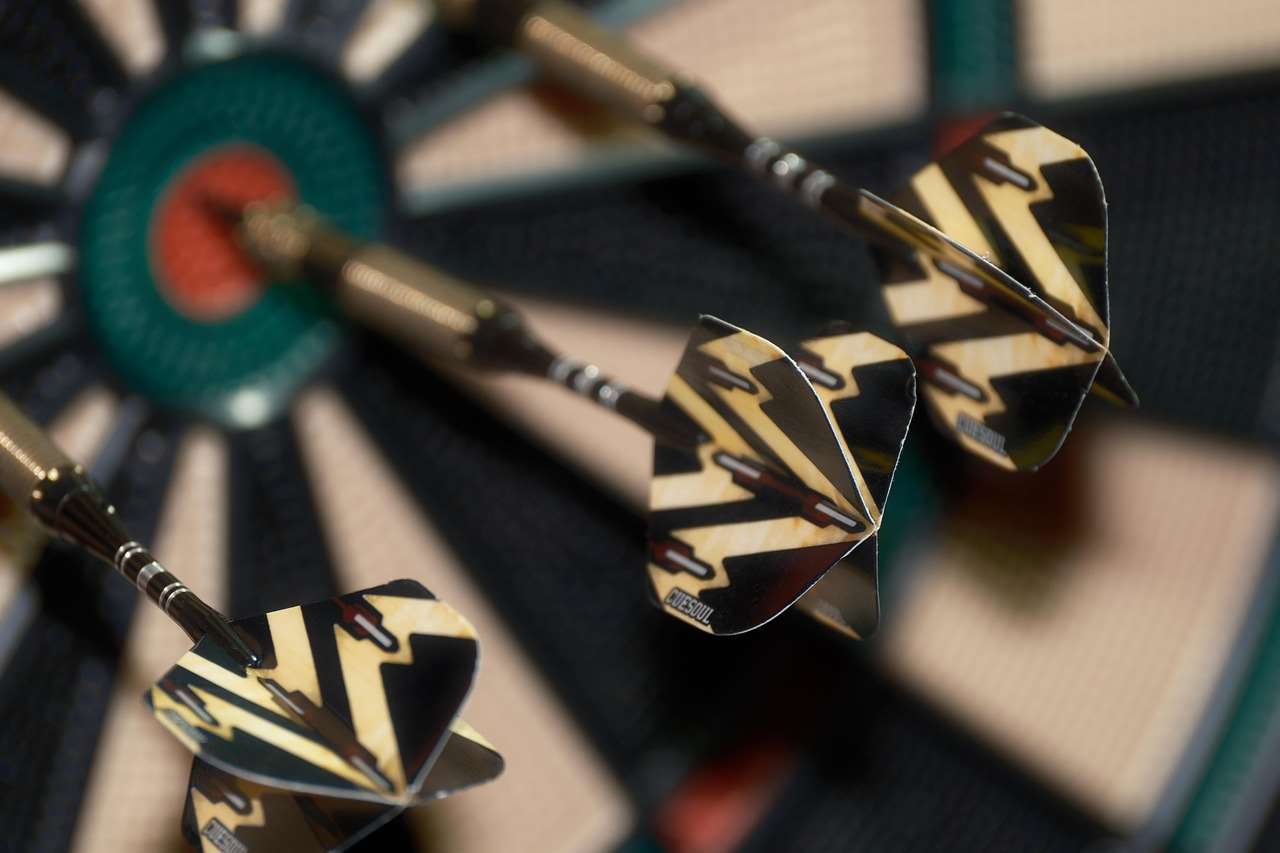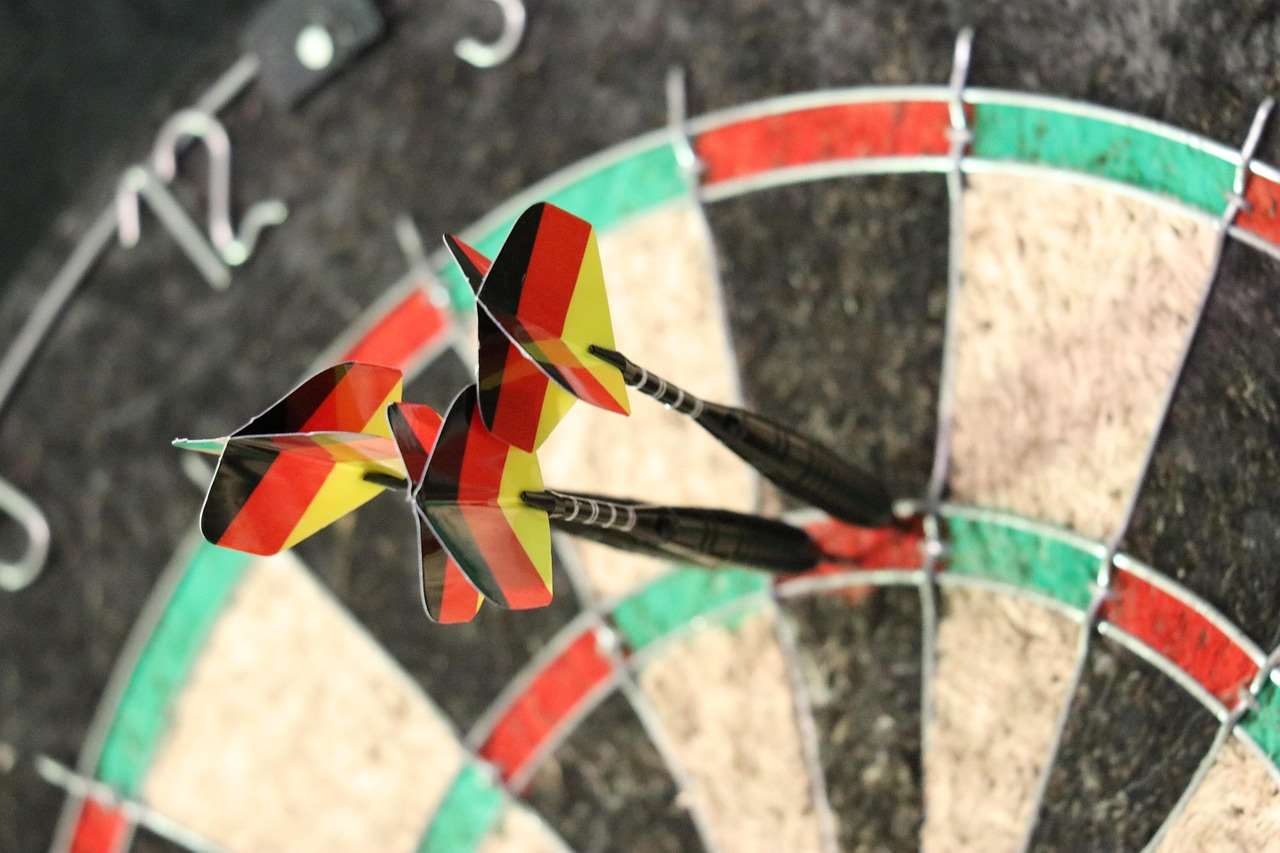Understanding the principles of fair play and ethics when adapting dart rules is crucial for maintaining the integrity and enjoyment of the game, especially in casual or recreational settings. This article will explore the key considerations and best practices for modifying dart rules responsibly, ensuring everyone has a fun and fair experience. We will cover topics like handicapping, adjusting scoring systems, and adapting rules for different skill levels and age groups.
⚠️ Still Using Pen & Paper (Of een schoolbord)?! ⚠️
Stap in de toekomst! De Dart Teller -app behandelt alle scoren, stelt kassa voor, en volgt uw statistieken automatisch. It's easier than you think!
Probeer de Smart Dart Teller -app gratis!Klaar voor een upgrade? Klik hierboven!
The Importance of Fair Play and Ethics When Adapting Dart Rules
Darts, at its core, is a game of skill and precision. Echter, not every player is at the same skill level. When playing with friends, family, or in casual settings, strict adherence to professional rules can sometimes diminish the fun and create an uneven playing field. That’s where adapting dart rules can be beneficial. Echter, the key is to do so with fair play and ethics in mind. Adapting rules without considering these principles can lead to frustration, resentment, en uiteindelijk, a less enjoyable experience for everyone involved. Thinking about Alternatieve Darts -regels voor thuisspel ensures maximum fun for all.
Fairness means ensuring that all players have a reasonable chance of winning, regardless of their skill level. Ethics, in this context, involves acting with integrity and transparency, making sure that rule modifications are agreed upon collectively and applied consistently. It’s not about dumbing down the game; it’s about leveling the playing field in a way that promotes engagement and positive competition.

Key Considerations for Adapting Dart Rules
Before modifying any dart rules, it’s important to consider several factors:
- Skill Level: The most significant factor is the range of skill levels among the players. If there’s a wide disparity, adjustments are usually necessary.
- Age: When playing with children or elderly individuals, the standard rules may need to be modified for accessibility and enjoyment.
- Physical Limitations: Consider any physical limitations that players might have. This could involve adjusting throwing distances or allowing for assisted throws.
- Experience: Newcomers to darts may benefit from simplified rules or scoring systems to ease them into the game.
- Purpose of the Game: Are you playing competitively or just for fun? The purpose will influence the type and extent of rule modifications you make. Fun dart game variations with modified rules are great for parties.
- Transparency and Agreement: All rule changes should be discussed and agreed upon by all players before the game begins. This ensures that everyone is on the same page and minimizes potential disputes.
By considering these factors, you can tailor the dart rules to create a more equitable and enjoyable experience for everyone involved.
Handicapping Systems for Fair Play
One of the most effective ways to level the playing field is through a handicapping system. Here are a few common approaches:
- Starting Score Adjustment: Give less experienced players a head start by deducting points from their initial score (Bijv., starting at 401 instead of 501).
- Target Number Reduction: Reduce the number required to finish the game for less skilled players.
- Bonus Points: Award bonus points for achieving specific targets or milestones.
When implementing a handicapping system, be transparent about how it works and ensure that it is applied fairly to all players. How to make darts fairer with handicap rules is a common question among casual players.
Specific Rule Adaptations and Their Ethical Implications
Here’s a look at some common dart rule adaptations and the ethical considerations involved:
- Adjusting the Throwing Distance:
- Adaptation: Allowing players with physical limitations or younger children to throw from a closer distance.
- Ethical Implications: Ensures inclusivity but could give an unfair advantage if not implemented thoughtfully. Make sure the adjusted distance is appropriate for the individual’s abilities and doesn’t significantly impact the difficulty of the game.
- Modifying the Scoring System:
- Adaptation: Simplifying the scoring system by counting only hits within the double and triple rings as single points.
- Ethical Implications: Reduces complexity for beginners but can drastically change the game’s dynamics. It’s essential to clearly communicate the modified scoring rules before the game starts.
- Changing the Number of Darts per Round:
- Adaptation: Allowing beginners to throw more than three darts per round or reducing the number for more skilled players to increase the challenge.
- Ethical Implications: Impacts the game’s pace and strategy. Ensure that all players are comfortable with the change and that it doesn’t unduly advantage or disadvantage anyone.
- Adapting Finish Rules:
- Adaptation: Relaxing the requirement to finish on a double, allowing players to finish on any number.
- Ethical Implications: Makes the game easier and quicker, particularly for beginners. Echter, it removes a significant element of strategy. If you’re playing with more experienced players, this might not be a welcome change.
Each of these adaptations has the potential to impact the fairness and integrity of the game. It’s crucial to weigh the benefits of each adaptation against its potential drawbacks and to make sure that all players are in agreement. Considering adapting-darts-rules-for-beginners is important when playing with novice players.

Handling Disputes and Ensuring Transparency
Even with the best intentions, disputes can arise when playing with adapted rules. Here are some tips for handling disagreements fairly and transparently:
- Establish Clear Rules Upfront: Before the game begins, clearly define all the rules, including any modifications. Write them down if necessary.
- Designate a Referee: Assign someone to act as a referee to resolve disputes and ensure that the rules are followed consistently.
- Encourage Open Communication: Create a safe space for players to voice their concerns or disagreements.
- Be Willing to Compromise: If a dispute arises, be willing to listen to all sides and find a solution that is fair to everyone involved.
- Document Rule Changes: Any modifications made during the game should be documented and agreed upon by all players.
By handling disputes fairly and transparently, you can maintain a positive and enjoyable atmosphere for everyone involved.
Adapting Dart Rules for Different Age Groups
When playing with children or elderly individuals, it’s often necessary to make significant rule adaptations to ensure that the game is accessible and enjoyable for them. Here are some specific considerations:
For Children:
- Shorten the Throwing Distance: Children typically have shorter arms and less strength, so reducing the throwing distance is essential.
- Simplify the Scoring System: Use a simplified scoring system that focuses on basic arithmetic.
- Increase the Target Size: Use larger dartboards or create custom targets with larger scoring areas.
- Allow Multiple Throws: Allow children to throw more than three darts per round.
- Focus on Fun: Emphasize the fun and social aspects of the game rather than strict competition.
For Elderly Individuals:
- Accommodate Physical Limitations: Allow players to sit while throwing or use assisted throwing devices.
- Use Larger Darts: Larger darts can be easier to grip and throw for individuals with arthritis or other mobility issues.
- Provide Adequate Lighting: Ensure that the dartboard is well-lit to improve visibility.
- Take Breaks: Encourage players to take frequent breaks to avoid fatigue.
- Be Patient and Understanding: Be patient and understanding of any difficulties that players may have.
Adapting dart game rules for children is a must for family game night.

Examples of Ethical Dilemmas in Adapted Dart Rules
Consider these scenarios:
- De “Friendly” Advantage: You’re playing with a less skilled friend and subtly adjust the rules to favor them, without informing the other players. Is this ethical?
- The Mid-Game Modification: A player is struggling, and you suggest changing a rule mid-game to help them out. Is this fair to the other players who have been playing under the original rules?
- The Unintentional Bias: You create a handicapping system that unintentionally favors certain players over others. Is it your responsibility to adjust the system, even if it means disadvantaging yourself?
The answers to these questions aren’t always straightforward, and they often depend on the specific context and the attitudes of the players involved. Echter, by considering these dilemmas, you can develop a more nuanced understanding of the ethical implications of adapting dart rules.
The Role of Honesty and Sportsmanship
Even with perfectly crafted adapted rules, honesty and sportsmanship are essential for maintaining a fair and enjoyable game. Dit omvat:
- Accurate Scoring: Being honest about your scores and accurately recording them.
- Calling Your Own Fouls: Admitting when you’ve made a mistake, such as throwing out of turn or stepping over the oche.
- Respecting Your Opponents: Treating your opponents with respect, regardless of their skill level.
- Accepting Defeat Gracefully: Congratulating your opponents on their victory and avoiding excuses for your loss.
- Maintaining a Positive Attitude: Focusing on having fun and enjoying the game, regardless of the outcome.
These principles of honesty and sportsmanship are just as important, if not more so, than the specific rules of the game. By embodying these values, you can create a positive and inclusive environment for all players.

Creative Rule Adaptations for Enhanced Fun
While fairness is paramount, don’t be afraid to get creative with your rule adaptations to enhance the fun and excitement of the game. Here are a few ideas:
- Target-Based Challenges: Award bonus points for hitting specific targets (Bijv., the bullseye, a triple 20).
- Team-Based Games: Play in teams and create unique scoring systems that reward teamwork and collaboration.
- Themed Games: Adapt the rules to fit a specific theme (Bijv., a Halloween-themed game with spooky targets).
- Random Rule Generators: Use a random rule generator to introduce unexpected twists and challenges.
- Trick Shot Challenges: Incorporate trick shot challenges into the game.
Remember to involve all players in the rule adaptation process to ensure that everyone is on board with the changes. Creative dart rules for parties and social gatherings will add a unique twist.
Maintaining a Balance Between Fun and Fairness
The ultimate goal of adapting dart rules is to strike a balance between fun and fairness. The perfect balance will vary depending on the specific group of players and the purpose of the game. Echter, by considering the principles outlined in this article, you can create a set of rules that is both enjoyable and equitable for everyone involved. Basic Darts Fundamentals for Beginners are important to learn before considering variations in rules.
Remember that the most important thing is to create a positive and inclusive environment where everyone feels comfortable participating and having fun. With a little bit of thought and effort, you can adapt dart rules to create a truly memorable and enjoyable experience for all.

Conclusie
Conclusie, fair play and ethics when adapting dart rules are essential for ensuring a positive and inclusive gaming experience. By carefully considering factors like skill level, age, physical limitations, and the purpose of the game, you can tailor the rules to create a level playing field and maximize enjoyment for everyone. Transparency, open communication, and a willingness to compromise are crucial for resolving disputes and maintaining a positive atmosphere. Remember that honesty, sportsmanship, and a focus on fun are just as important as the specific rules themselves. Dus, gather your friends, discuss your rule adaptations, and let the darts fly! Ready to put these principles into action? Bekijk onze gids op modifying rules for mixed-level dart players for more practical tips!
Hoi, Ik ben Dieter, En ik heb Dartcounter gemaakt (Dartcounterapp.com). Mijn motivatie was geen darts -expert - helemaal tegenovergestelde! Toen ik voor het eerst begon te spelen, Ik hield van het spel, maar vond het moeilijk en afleidend om nauwkeurige scores te houden en statistieken te volgen.
Ik dacht dat ik niet de enige kon zijn die hiermee worstelde. Dus, Ik besloot om een oplossing te bouwen: een eenvoudig te gebruiken applicatie die iedereen, Ongeacht hun ervaringsniveau, zou kunnen gebruiken om moeiteloos te scoren.
Mijn doel voor Dartcounter was eenvoudig: Laat de app de nummers afhandelen - het scoren, de gemiddelden, de statistieken, Zelfs checkout suggesties - zodat spelers puur kunnen richten op hun worp en genieten van het spel. Het begon als een manier om het probleem van mijn eigen beginners op te lossen, En ik ben heel blij dat het is uitgegroeid tot een nuttig hulpmiddel voor de bredere darts -community.